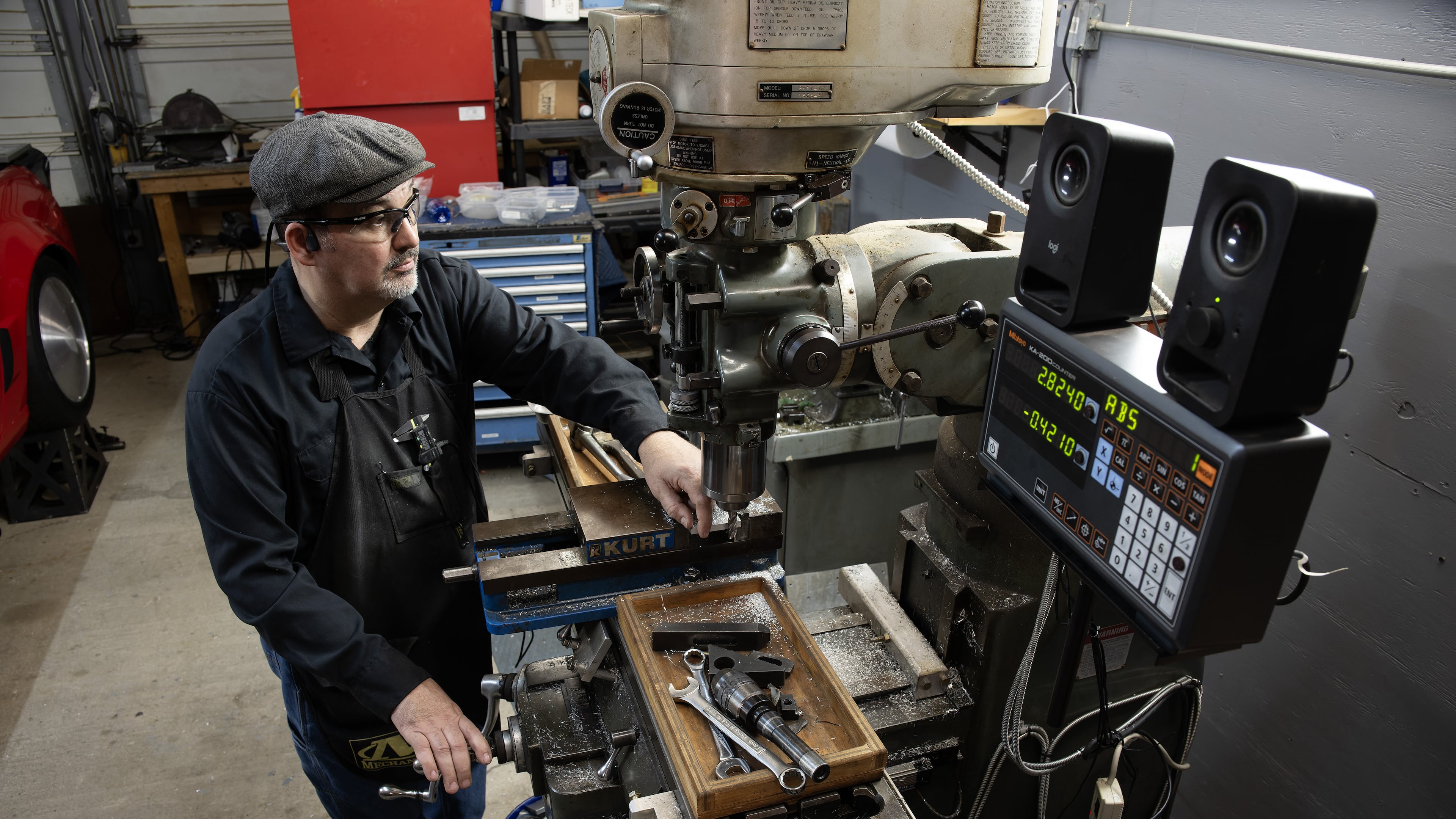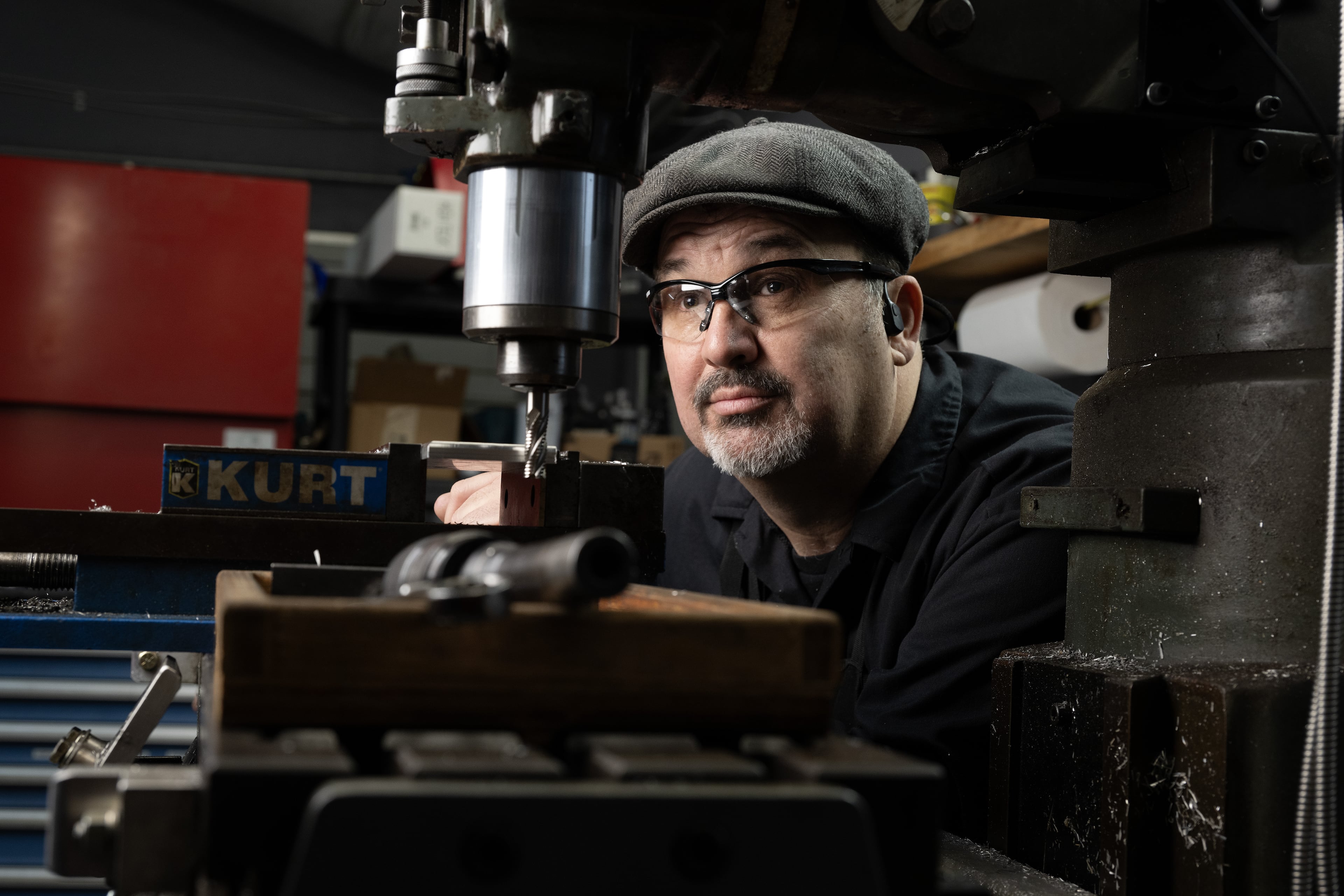They all started companies. Some from wheelchairs

The entrepreneurs who arrived for the awards ceremony in a vast Cobb County ballroom wore tuxedos and gowns, suits and vibrant colors. One woman sported an eye patch with a sparkly skull and cross bones, like a glam pirate.
Some rolled in on wheelchairs, relied on canes, or covered their feeding tubes with their evening wear.
Invited by a Georgia-based nonprofit, they came here last week from around the nation. Beyond starting businesses from scratch, they had something else in common: All have disabilities.
“Entrepreneurship is tough,” said 38-year-old Alvaro Silberstein, after wheeling up on the stage, pushed by his fellow business co-founder. “You need to overcome challenges. You need to be resilient. And I think people with disabilities have lived that all of our lives.”
At 18 years old he was paralyzed from the waist down after a car accident. He can’t walk or control his fingers, but he earned an MBA. And with friend Camilo Navarro, he founded Wheel the World, raising $10 million for a site that helps people with disabilities book travel, from hotels to things to do, that meet their specific accessibility needs.
The idea stemmed from Silberstein’s struggles to plan his own trip to a national park in Patagonia. Silberstein, who lives in Berkeley, California, said the five-year-old company now has a 45-person staff, helps with about 6,000 travel bookings and expects to become cash flow positive next year.
“I am lucky I’m doing this,” he said. “I love what I do. I love the problem we are solving.”
People who are disabled can face extra hurdles beyond the already daunting challenges of starting a business and trying to grow it to profitability, work that often leads to brutal work hours.
Jacqueline Child, who has a number chronic illnesses that have led to disabilities, said she regularly grapples with physical pain and intense fatigue.
Child, who lives in Denver, launched a dating app for the disabled and chronically ill community. She said she has endured more than 40 surgeries because of her illnesses. She relies on a feeding tube and has to build her business around frequent medical visits and the need to take a nap in the middle of the day.
She had wanted to work in a children’s hospital. But after college, her health took a turn and she realized a hospital job would be too physically demanding. She was adrift and jobless. What would the purpose of her life be?
“I did not feel like I was a contributing member of society .... I always thought people would think I was a loser,” she said.
When she’d go on dating apps, she said she came away at times feeling rejection and discrimination when she disclosed her disabilities. In the fall of 2022, she and her sister, Alexa Child, created Dateability, which they say now has about 20,000 users, including a presence in metro Atlanta.
“I’m so proud of myself. Not for finding a boyfriend, because frankly, I haven’t found that, but for finding a purpose,” she told attendees.
The recent awards ceremony, held before a crowd of about 200 people in the ballroom of the Cobb Energy Performing Arts Centre, was organized by Synergies Work, a local nonprofit that connects company founders who have disabilities with resources, mentors and other help.
The organization’s founder, Aarti Sahgal, was mentioned in an Atlanta Journal-Constitution story last year about one of her sons, who has Down syndrome and made his first successful cold call as an entrepreneur.
Winners of the second annual EDDIE awards, short for Entrepreneurs Dedicated to Diverse and Inclusive Excellence, were selected by a panel of judges and went to people regardless of whether they had worked with Synergies Work. Sahgal told the Cobb audience that the awards are designed to go to people who are audacious and bold, who are “not scared of breaking down doors, actually, demolishing doors.”
Silberstein won the grand prize for Entrepreneur of the Year, which came with $10,000. Child won the newcomer award.
The event included an array of performers, presenters and award finalists with disabilities. Dan Parker of Columbus, a former drag racer permanently blinded in an accident, has since set a world record for driving blindfolded (211.043 mph) and now crafts handmade pens. Derek Heard, a graphic artist from Albany, said his business, Derek’s Doodles, “makes my voice powerful.” He won an award for creativity.

Brett Swanson, a 26-year-old who has autism and epilepsy, is one of the founders of a metro Atlanta nonprofit, Three Basketeers, that produces gift baskets. There’s just enough work to keep him busy for a day or two a week, but his mom, Sue Swanson, is hoping it will grow into more of a full-time effort.
He raced through a prepared speech on stage after receiving an award for community champions, and then rushed off, his mom following behind. Back at the table his mom told him, “I’m so proud,” held his face in her hands and kissed him on the cheek.
When Ruby “Sunshine” Taylor took the stage after winning an award for social impact, she called out her parents, including her nearly 86-year-old mom who was in the audience. “This is for you, baby.”
Taylor started the Financial Joy School, a gaming and education platform to provide financial education. For years she had been a school social worker. Then she suffered a traumatic brain injury in a car accident. For a long time it left her unsure who her mother was. She was unable to smile or laugh. She couldn’t pick up a fork. She wanted to kill herself by jumping out of a high-up window of the building where she lived in the Bronx, she told a reporter. But her brain was so scrambled that she couldn’t figure out how to get to a higher floor.
Gradually, years of rehabilitation changed her outlook, as did financial and investment education she received from the parent of a former student. Now, her smile is infectious, and she wants to spread the word through her four-year-old business.
Because of her injuries, a therapist told her regular 9-to-5 jobs are no longer possible, the 46-year-old said. She takes naps, battles headaches and can focus on just one thing at a time or she forgets what she’s doing. “My short-term memory is trash.”
She has to hold herself to work no more than 30 hours a week and often less. The disability, she said, “has limited my speed, but it has not limited my heart.”




